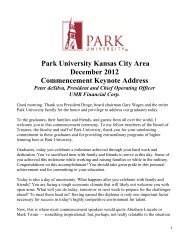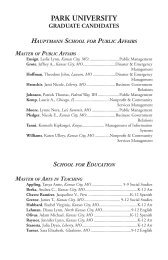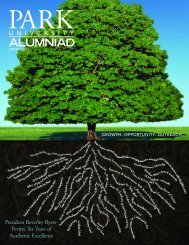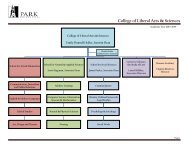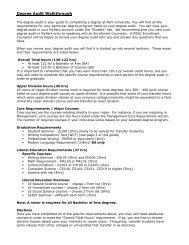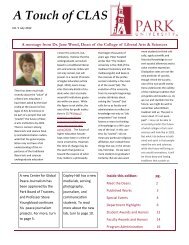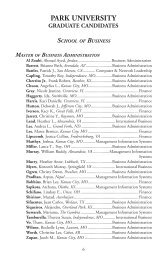How to Write a Radio Serial Drama for Social Development- PDF
How to Write a Radio Serial Drama for Social Development- PDF
How to Write a Radio Serial Drama for Social Development- PDF
Create successful ePaper yourself
Turn your PDF publications into a flip-book with our unique Google optimized e-Paper software.
80 Chapter Five: Character <strong>Development</strong><br />
The writer’s first instinct should be against including a narra<strong>to</strong>r except at<br />
the beginning and end of the drama. A narra<strong>to</strong>r slows the action and breaks<br />
the sense of reality of the s<strong>to</strong>ry. There are a few occasions, however, when a<br />
narra<strong>to</strong>r—if skillfully employed—can be used in a serial drama. There are<br />
three approaches <strong>to</strong> narration.<br />
1. The first-person narra<strong>to</strong>r. The major character of the serial introduces<br />
his own s<strong>to</strong>ry in narrative <strong>for</strong>m and then slips in<strong>to</strong> the role of a character<br />
<strong>to</strong> bring the tale <strong>to</strong> life. The first-person narra<strong>to</strong>r is both the teller of the<br />
tale and a participant in it.<br />
In the serial drama, The Doc<strong>to</strong>r’s Diary, an elderly doc<strong>to</strong>r looks back over<br />
his life, recounts some of his adventures, and passes on valuable in<strong>for</strong>mation<br />
and lessons <strong>to</strong> the listening audience. Each episode of the serial opens with<br />
the doc<strong>to</strong>r’s narration, as illustrated here:<br />
EXAMPLE<br />
4. DOCTOR:<br />
(as narra<strong>to</strong>r)<br />
It was an extraordinary adventure really. I had never been away<br />
from my own home be<strong>for</strong>e, and I was still quite young...barely<br />
twenty five years old. And now the whole responsibility of the<br />
health care of this island was <strong>to</strong> be on my shoulders. (FADING<br />
OUT) I remember well the day I arrived...<br />
5. MUSIC. DRAMA THEME MUSIC UP :05. CROSS FADE TO FX AND OUT.<br />
6. FX. SOUNDS OF BUSY HARBOR. CAR HORNS. PEOPLE SHOUTING.<br />
ETC. FADE UNDER SPEECH.<br />
7. ELDER: (OFF SLIGHTLY) Ah, doc<strong>to</strong>r, we are so happy that you have<br />
arrived. (ON) We have been waiting <strong>for</strong> you. There are so many<br />
people ill on our island.<br />
8. DOCTOR: I’m happy <strong>to</strong> be here, sir. My name is Doc<strong>to</strong>r Lakut. Dr. Leos<br />
(as character) Lakut.<br />
After the doc<strong>to</strong>r’s opening narration, the s<strong>to</strong>ry shifts <strong>to</strong> dramatic <strong>for</strong>m,<br />
and the doc<strong>to</strong>r becomes a character in the serial. He will go back in<strong>to</strong> the<br />
role of narra<strong>to</strong>r as required, however, <strong>to</strong> explain the passage of time, the<br />
movement from one place <strong>to</strong> another, or the relationship of a past event <strong>to</strong><br />
present time.<br />
After the listeners have heard—in dramatic <strong>for</strong>m—the doc<strong>to</strong>r’s<br />
experiences with a bad outbreak of cholera on the island, the doc<strong>to</strong>r switches<br />
back <strong>to</strong> the role of narra<strong>to</strong>r.




